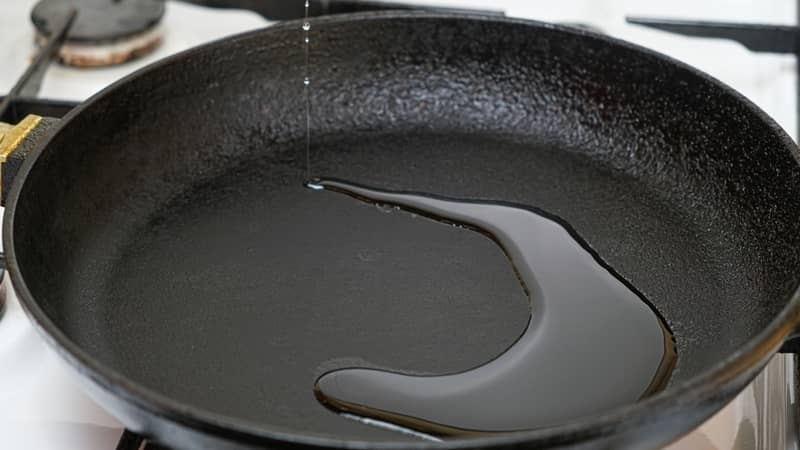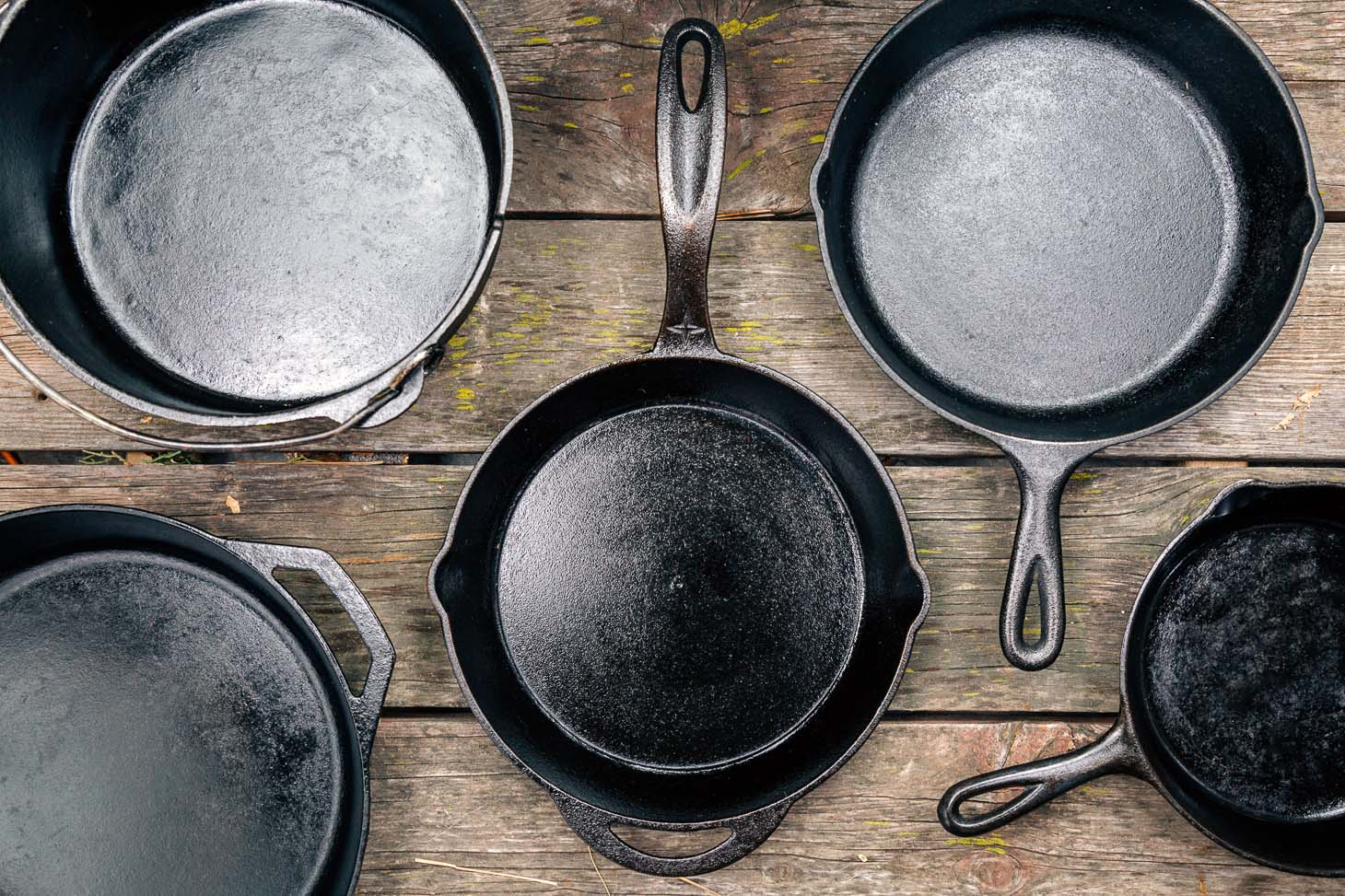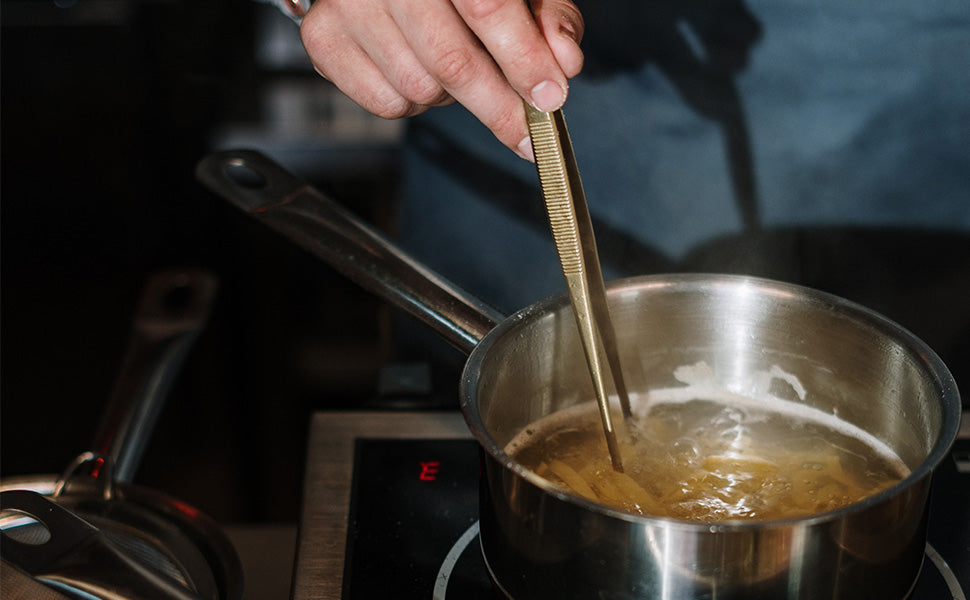When it comes to cooking on a griddle, the right oil can make all the difference. Choosing the best oil for seasoning griddle ensures that your cooking surface stays in optimal condition and that your food tastes exceptional. For professional chefs and kitchen enthusiasts alike, understanding how to properly season your griddle is crucial to achieving that coveted non-stick surface and enhancing the flavor of your dishes.
But with so many oil options available, how do you know which one is the best for seasoning your griddle? Fear not. In this article, we will guide you through the most effective oils for seasoning your griddle, giving you the insights you need to enhance your cooking efficiency and taste.

The Importance of Seasoning Your Griddle
Understanding the importance of seasoning your griddle cannot be overstated. Proper seasoning not only helps to prevent food from sticking but also contributes to the longevity of your griddle. A well-seasoned griddle can withstand the rigors of daily cooking, maintain its integrity, and provide a consistent cooking surface.
Without seasoning, the surface of your griddle can oxidize, leading to rust and deterioration. Additionally, the seasoning creates a natural non-stick surface that improves the flavor of the food cooked on it. For kitchen professionals, ensuring that your griddle is in peak condition is essential for achieving excellent culinary results.
Factors to Consider When Choosing Oil for Seasoning
When choosing the best oil for seasoning your griddle, consider these key factors:
- Smoke Point: The smoke point of an oil is critical because it determines how well the oil will perform when heated. Oils with high smoke points are ideal for seasoning.
- Flavor: Some oils impart their taste to food more than others. Depending on your cooking style, you may prefer oils with neutral flavors.
- Cost and Availability: While some oils may be superior, they might also be less accessible or more expensive. Consider your budget and local availability.
- Health Considerations: Some oils are healthier than others. Its important to choose an oil that aligns with your health goals.
Top Oils for Seasoning Griddles
Lets dive deeper into the top oils that are deemed the best oil for seasoning griddle. Each has its unique qualities that make them suitable for high-temperature cooking and seasoning.
1. Flaxseed Oil
Flaxseed oil is a popular choice among chefs for its high smoke point (around 225F) and its ability to create a hard, protective layer when seasoned. This oil is rich in Omega-3 fatty acids, making it a healthier option. It provides a robust flavor and, when properly seasoned, greatly enhances the cooking experience.
2. Grapeseed Oil
Known for its neutral flavor profile, grapeseed oil has a high smoke point (around 420F), making it an excellent choice for griddle seasoning. Its light taste means it wont interfere with the flavors of your dishes. This oil is also relatively inexpensive and widely available.
3. Canola Oil
Canola oil is another practical option, with a smoke point around 400F. It offers affordability and a neutral flavor, making it versatile for both seasoning and cooking. Canola oil is favored by many professional chefs for its ease of use and effectiveness.
4. Avocado Oil
With one of the highest smoke points (around 520F), avocado oil is excellent for high-temperature cooking and griddle seasoning. It has a unique, slightly buttery flavor, adding depth to your dishes while also enhancing the griddle's surface.
5. Vegetable Oil
Often a go-to option due to its high smoke point (around 400F) and low cost, vegetable oil works well for seasoning your griddle. Its mild flavor ensures it wont overshadow your culinary creations. This oil is especially popular in both home and professional kitchens.
How to Season Your Griddle
Now that you know which oils to use, lets cover the proper technique for seasoning your griddle:
- Clean Your Griddle: Start with a clean cooking surface. Use hot water and a scraper to remove any residue.
- Warm It Up: Preheat your griddle to about 350F. This allows the oil to spread and bond with the surface effectively.
- Apply Oil: Using a paper towel or cloth, apply a thin layer of your chosen oil evenly across the surface.
- Heat It Again: Allow the griddle to heat for approximately 30 minutes. This helps the oil polymerize, creating a non-stick surface.
- Let It Cool: Once finished, turn off the heat and let the griddle cool down gradually.
- Repeat if Necessary: Depending on the initial condition of your griddle, you may want to repeat the seasoning process a few times for optimal results.
Maintaining Your Seasoned Griddle
Once you've seasoned your griddle, keeping it in top shape is easy with a little care. Here are maintenance tips:
- Clean with Care: Avoid harsh detergents or scrubbing pads. Simply wipe it down with a damp cloth.
- Reapply Oil Periodically: After each use, lightly oil the griddle to maintain the seasoned layer.
- Store Properly: Keep the griddle in a dry, cool place to prevent moisture and ensure its longevity.

FAQs
1. What is the best oil for seasoning a griddle?
The best oil for seasoning griddle varies according to personal preference, but popular choices include flaxseed oil, grapeseed oil, and avocado oil due to their high smoke points.
2. How often should I season my griddle?
Its good practice to season your griddle every few uses, or whenever you notice food starting to stick or the surface appears dull.
3. Can I use olive oil for seasoning my griddle?
While olive oil has a lower smoke point (around 375F), it can still be used for seasoning, especially if you use it carefully and at lower temperatures.
If you're seeking more information on griddle maintenance and seasoning, you might find this helpful blog. Additionally, check out the Lodge guide on seasoning for further insights.
As an Amazon Associate, I earn from qualifying purchases.






Leave a comment
This site is protected by hCaptcha and the hCaptcha Privacy Policy and Terms of Service apply.